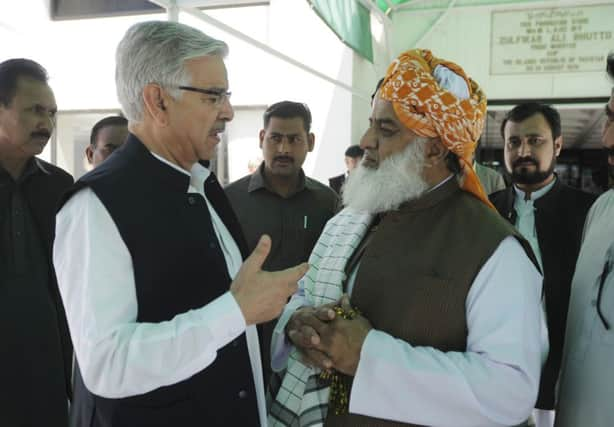Pakistan votes to stay out of Yemen conflict


After days of debating, Pakistani MPs unanimously voted in favour of a resolution which states that “the parliament desires that Pakistan should maintain neutrality in the Yemen conflict so as to be able to play a proactive diplomatic role to end the crisis.”
Pakistan, a predominantly Sunni nation which has a Shiite minority of its own and shares a long border with Shiite powerhouse Iran, has been concerned about getting involved in Yemen’s increasingly sectarian conflict and a Saudi-Iran proxy war in the region.
Advertisement
Hide AdAdvertisement
Hide AdThe conflict in Yemen pits the Saudi-led Sunni Gulf Arab coalition against Shiite rival Iran, which supports the rebels known as the Houthis and has provided humanitarian aid, though both Tehran and the rebels deny it has armed them.
The growing regional involvement risks transforming what until now has been a complex power struggle into a full-blown sectarian conflict like those raging in Syria and Iraq.
Since the Saudi-led coalition launched the aerial campaign more than two weeks ago, pro-Saudi groups have rallied across Pakistan, urging Islamabad to join the coalition.
The rallies, organised by a militant-linked Sunni group and Hafiz Saeed, who heads the Jamaat-ud-Dawa religious group, have condemned the Shiite rebels’ advance in Yemen.
Iran has been trying to garner international support to stop the bombing and has stepped up its condemnation of the air campaign. The country’s Supreme Leader, Ayatollah Ali Khamenei, called it “genocide”.
Pakistan’s resolution came a day after Iranian foreign minister Mohammad Javad Zarif visited Islamabad to discuss the conflict in Yemen with Pakistani prime minister Nawaz Sharif.
Mr Zarif has said that Iran is ready to facilitate peace talks that would lead to a broad-based government in Yemen. He also called for a cease-fire to allow for humanitarian assistance. “We need to work together in order to put an end to the crisis in Yemen,” he said.
Mr Sharif attended the joint session of parliament yesterday to indicate his approval for the resolution.
Advertisement
Hide AdAdvertisement
Hide AdIf the conflict in Yemen becomes an all-out sectarian war, this will “have a critical fallout in the region, including in Pakistan,” the motion said.
The parliament also urged Muslim countries and the international community to intensify their efforts to promote peace in Yemen. It called on Pakistan’s envoys to “initiate steps” before the United Nations Security Council “to bring about an immediate ceasefire in Yemen”.
Even though the MPs opted to stay out of the conflict, the parliament also expressed its “unequivocal support” for Saudi Arabia, vowing that in case of any violation of its territorial integrity or any threat to the Muslim holiest places in the kingdom, Pakistan would “stand shoulder-to-shoulder with Saudi Arabia and its people”.
Despite the air strikes, the Houthis and their allies, forces loyal to former Yemeni president Ali Abdullah Saleh, have been advancing on the ground.
On Thursday, they captured Ataq, the capital of oil-rich Shabwa province, after days of violent clashes with local Sunni tribes.
FOLLOW US
SCOTSMAN TABLET AND MOBILE APPS